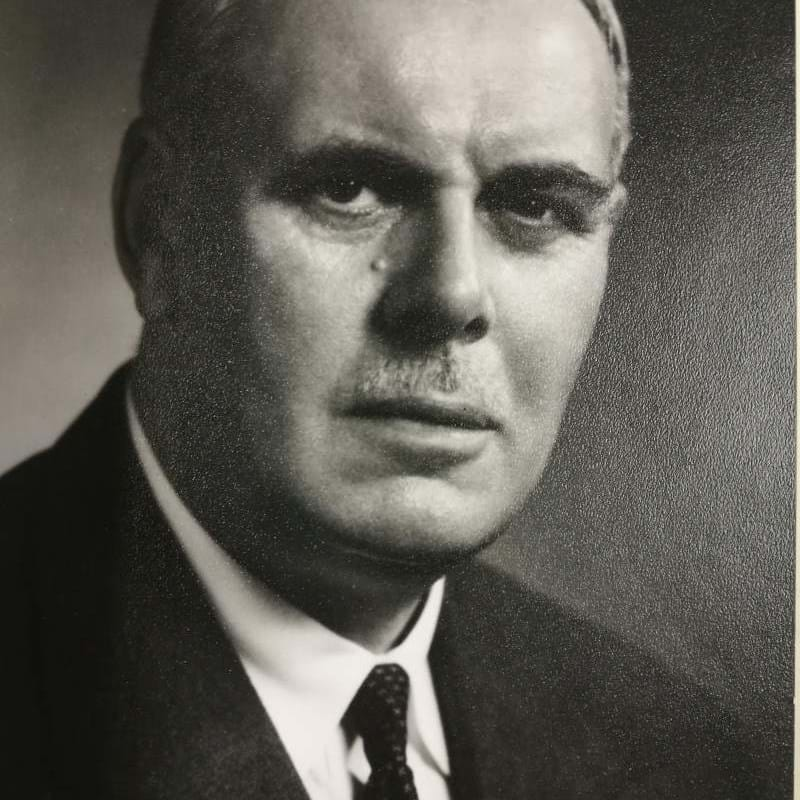
Colin Everett Spearing: 1961–1962
Colin Spearing's academic training was interrupted by the First World War in which he held a commission in the Royal Engineers and saw active service in France. Before joining the Army he had spent two years at the City & Guilds Technical College, Finsbury, where he studies applied chemistry and chemical engineering. After the war he completed his technical education at Cambridge where he took a degree in natural sciences in 1921.
In that same year he joined the Anglo-Persian Oil Company (later to become British Petroleum Company) with whom he remained until 1957. His first years in the industry were spent in Persia where he acquired considerable experience in refinery operations in Abadan and was also able to broaden this by serving for a time as Technical Manager of the Khanaqin Oil Company, a subsidiary based on a small oilfield on the Iran/Iraq border, which was engaged both in the production and refining of crude oil.
In 1929 he returned from Persia to work in the head office of the company in London and from then until 1957 he filled a succession of technical posts in the Refineries Department which culminated in his appointment as General Manager of that department in 1953. The Refineries Department embraced the whole of the technical side of the company outside exploration or crude oil production, and he was in daily contact with the problems not only of the refineries themselves but also of general engineering and research.
He was elected a director of BP Trading Co Ltd in 1957 but retired for health reasons at the end of that year.
In the early stages of the Second World War he was prominent in helping to build up the Petroleum Warfare Department, but the increasing technical demands made on the oil industry, and particularly for the production of 100 octane aviation spirit, later made it necessary for him again to devote his full attention to that side.
During the time he was in charge of the Refineries Department of the British Petroleum Company, a great many important developments were carried through. He was, for example, responsible for the decision in 1935 to build in Abadan crude oil distillation units of a capacity larger than anything previously contemplated. The economic benefits soon proved themselves and in America and elsewhere other companies followed the lead. The technical development of the Abadan aviation project during the Second World War, which culminated in a rate of production of over one million tons per year and which played an important part in the war effort, was largely his responsibility. After the war the expansion of the British Petroleum Company's refining activities throughout the continent and in the petrochemical fields involved the modernisation of a number of refineries and the building of new plants. This expansion in the refinery capacity of a great oil company was accompanied by a revolution in technology in which his breadth of technical interest allowed him to play a worthy part.
Colin Spearing joined the Institution in 1931 and was a member of its governing Council from 1946-1950, as well as being a Vice President from 1958-1960.
Return to list